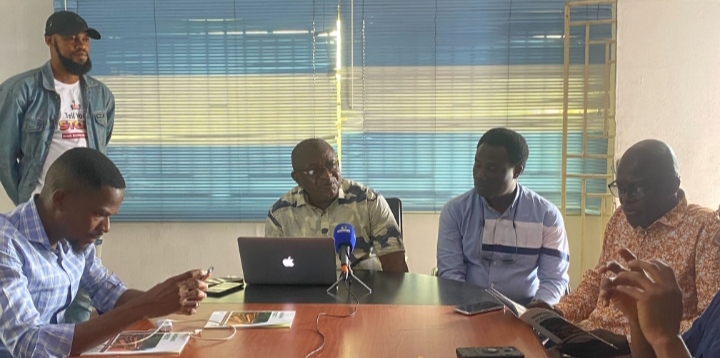By Ogar Monday
A report by two non-governmental organizations, We The People and the Rainforest Resources Development Centre (RRDC), have indicted 79 companies and individuals, including Dansa Allied Agro, a subsidiary of Dangote Group, Wilmar International, the Cross River State Government for the continuous depletion of the forest in the State.
The 23-page report highlighted how the Cross River State Government’s ban on logging has caused a significant increase in the demand for timber and how the State Government in collaboration with certain individuals is profiting from the trade.
At the media presentation of the report titled “Vanishing Forests: Issues and Drivers of Deforestation in the Cross River Rainforest” held in Calabar on Monday, Mr. Odey Oyama of RRDC said, “in 2008, the State Government had instituted a blanket ban on all forest activities, specifically targeting loggers which it considered the key drivers of deforestation at the time. For the government at the time, this action was necessitated by the need to protect the most critical asset of Cross River State which is its vast forests and the wildlife it shelters.
“It is important to note that the Cross River tropical rainforest was esteemed the richest cover in the whole of West Africa right up to the 20th Century. A massive share of the forest cover left in Nigeria is located in the State. As of 1990, it was estimated that 50% of Nigeria’s remaining forest was located in Cross River, spanning through tropical rainforests and large spreads of mangrove swamps in its southern parts.”
Oyama added that since 1991, the State forest cover has continued to decline and that “available records indicate that each year, the rate of deforestation intensifies” and that “the forests have come under severe attacks by several actors including the state government, plantations companies, and illegal loggers.
“The Cross River forests are undergoing progressive decline on two fronts. The first is on account of actions and policies of the state government which significantly threaten the forest cover. The second is by the actions of non-state actors including loggers who have invaded the forests at an alarming rate. Unfortunately, the latter reinforces the former.”
Oyama held that “In Akamkpa Local Government Area and on the fringes of the National Park, the Cross River State Government granted a permit to Dansa Allied Agro, subsidiary of the business concern, Dangote Group to establish a pineapple plantation and a facility for processing fruit into pineapple juice.
“However, rather than plant pineapples or process pineapple juice, the concession has provided cover for massive logging activities in the Cross River National Park,” Oyama stated.
On his part, Mr. Ken Henshaw, the Executive Director of We The People, maintained that there is a need to return the forest to the communities who have always protected it.
His words, “The indigenous people who live in and around the Cross River forests have historically taken the lead in preserving their forests. For generations, they fought off profiteers, including those sanctioned by the government. While the colonial, regional, and state governments respectively saw the forests as a revenue source, the indigenous people saw it as part of their heritage and existence.
“Unfortunately, the policies of the State Government in the last 14 years have weakened their relationship with the forests and their capacity to remain its protectors. It is recommended that state government policies that deprive communities of agency in protecting the forests be reversed, while communities are encouraged to take initiatives in once again protecting the forests.”
